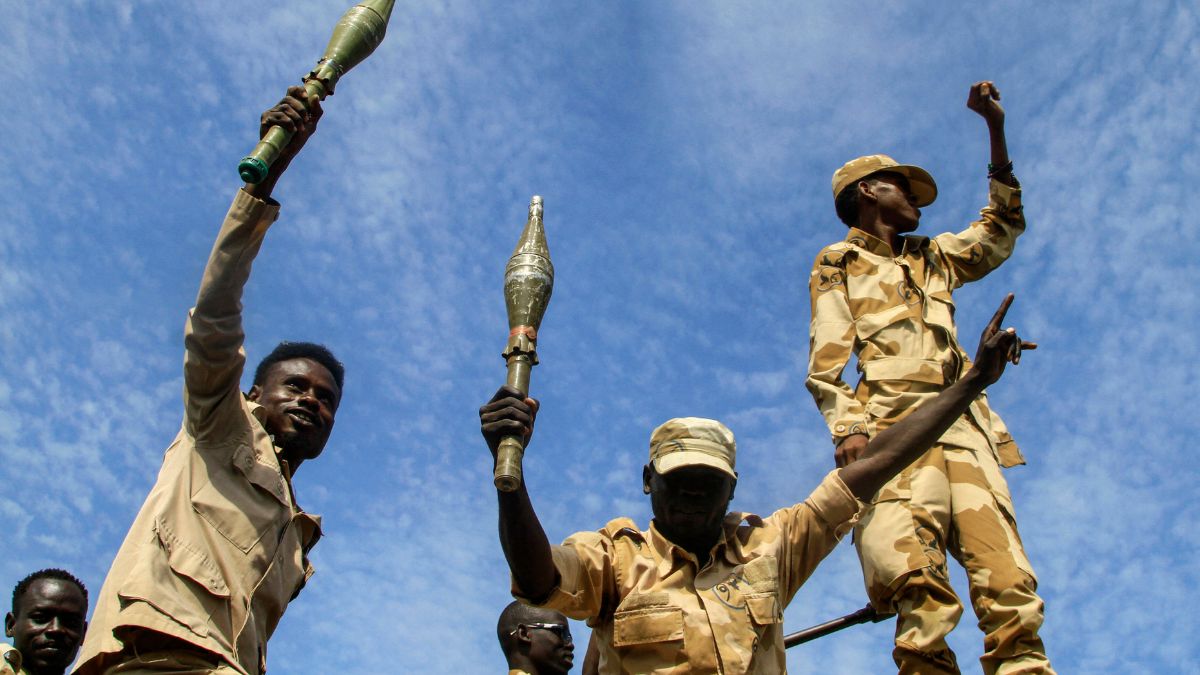Sudan’s paramilitary Rapid Support Forces (RSF), locked in a brutal war with the Sudanese army for nearly two years, announced plans this week to sign a founding charter for a “peace and unity government”– a move that could plunge the civil war-ridden nation into deeper chaos.
Initially set for Tuesday at Nairobi’s Kenyatta International Convention Centre, the signing was postponed to Friday (February 21). RSF Deputy Commander Abdel-Rahim Hamdan Dagalo, leading the delegation, promised a significant announcement at the rescheduled event.
The Sudanese government swiftly denounced the plan, warning it would not tolerate attempts to establish a rival administration. “[We will] fight anyone who seeks to establish a parallel government,” said Yasser Al-Atta, a member of Sudan’s Sovereign Council and assistant commander-in-chief of the Sudanese Army.
The announcement has fuelled fears of Sudan being pushed further toward fragmentation. The United Nations cautioned Wednesday that such a move could worsen an already dire humanitarian crisis.
“We’re very deeply concerned about any further escalation of the Sudanese conflict, and any steps like this one, which would increase the fragmentation of the country and risk making this crisis even worse,” said Stéphane Dujarric, spokesperson for the UN secretary-general.
Rising tensions, death toll
The Sudan civil war, between the military and RSF, has killed more than 24,000 people and displaced over 14 million– roughly 30 per cent of the population– according to UN estimates. Of those displaced, 3.2 million have fled to neighbouring countries.
The RSF currently controls large swathes of western Sudan and parts of the capital, Khartoum. However, the paramilitary force has recently lost ground in key areas. The Sudanese army has reclaimed parts of the Greater Khartoum area, including the strategic cities of Omdurman and Khartoum Bahri, TRT World repoted. RSF forces have also retreated from central Sudan, including Wad Madani, the capital of Al Jazirah state.
Impact Shorts
More ShortsDespite its territorial losses, the RSF remains a potent force.
Diplomatic fallout
The planned RSF announcement has also triggered diplomatic tensions. Sudan’s government accused Kenya of violating its sovereignty by hosting the RSF-led meeting. Nairobi’s decision to facilitate talks without Khartoum’s involvement has added another layer of complexity to the already volatile situation.
Observers fear that if the RSF follows through with its plan to declare a parallel government, Sudan could effectively be split between two competing authorities. Such a scenario would make any hope of a unified peace process significantly harder, increasing the likelihood of a prolonged civil conflict.
The RSF’s upcoming declaration leaves Sudan teetering on the brink of deeper fragmentation. While the paramilitary group frames its move as a step toward peace and unity, the Sudanese government and international observers warn it could mark the beginning of a dangerous dual-power scenario.
With inputs from agencies
)